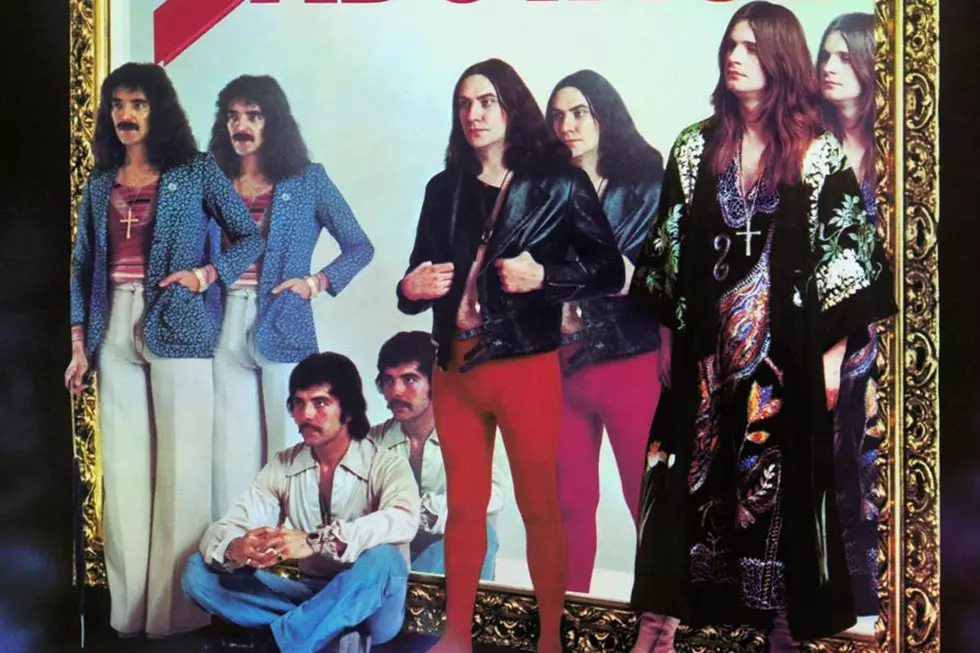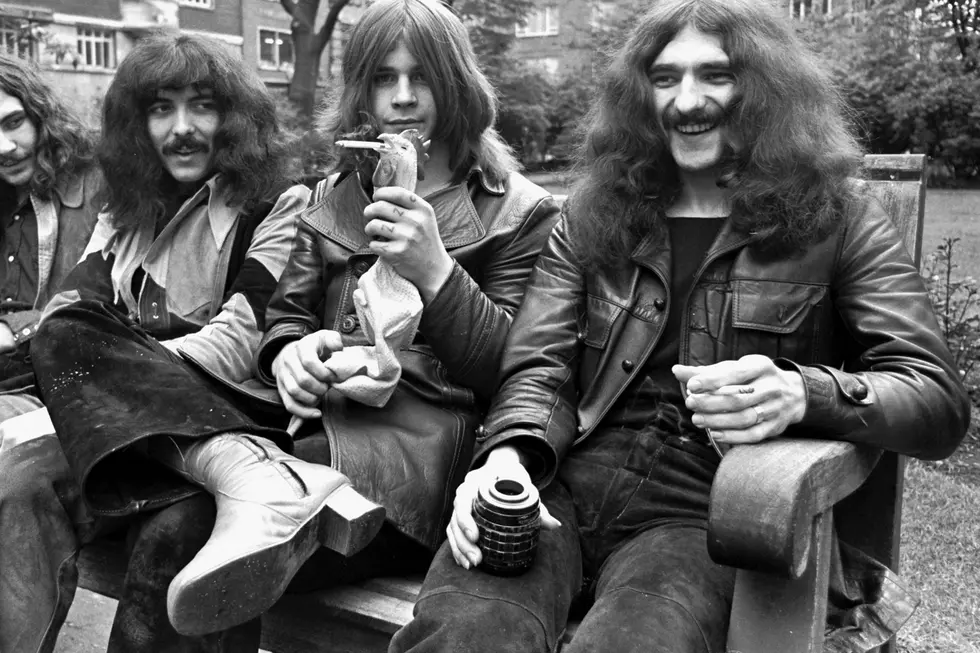
How Black Sabbath Endured Both Heaven and Hell With ‘Sabotage’
As Black Sabbath prepared to unveil their sixth studio album on July 28, 1975, their career appeared to be at its absolute zenith. And yet, the foundation of their heavy metal empire was rotting under their platform boots due to the dishonest dealings of their longtime management World Wide Artists.
No one seemed more surprised about this sickening turn of events than the four members of Sabbath themselves: Singer Ozzy Osbourne, guitarist Tony Iommi, bassist Geezer Butler and drummer Bill Ward.
For the band, the first half of the ‘70s had been a breathless marathon, packed with album after album and touring jaunts in-between. By 1975, this grueling workload (and its resulting physical and emotional toll) had helped them achieve a level of worldwide stardom beyond their wildest dreams, but hardly the same financial security. It was at this point that their worst suspicions finally came home to roost.
With the help of their notorious new manager Don Arden, Black Sabbath began the painful process of putting their business affairs in order in the summer of 1974. But they still had to put food on the table while the lawsuits were flying. It was under this kind of pressure that sessions for Sabotage were initiated – its title chosen to reflect the dire state of the group's finances.
Musically, the band was looking to dispense with the more sophisticated trappings of 1973’s Sabbath Bloody Sabbath by recording an in-your-face, pulverizing rock album – more in line with predecessors Vol. 4 and Master of Reality – without necessarily sacrificing the variety common to all of their albums. It goes without saying, though, that the urgent need to produce new music and get right back to earning much-needed dollars out on the road undoubtedly fueled the recording process, to some extent.
As such, the band’s signature doom plod was expeditiously unearthed for the opening “Hole in the Sky” and – following a brief acoustic interlude from Iommi named “Don’t Start (Too Late)” – pushed to glorious heights via the galloping staccato strums and mystical lyrics of “Symptom of the Universe.” Black Sabbath would arguably never again conjure their alchemical original formula quite like they did on this classic song, but they sure came close with the driving attack of “Thrill of it All” and the radical dynamic shifts undertaken by twin epics “Megalomania” and “The Writ” — the last obviously inspired by their ongoing litigation.
Listen to Black Sabbath's 'Hole in the Sky'
Somewhat less impressive were the perplexing choirs laden atop the otherwise instrumental “Supertzar” and the album’s synthetic-sore-thumb of a single, “Am I Going Insane? (Radio),” whose title essentially confirmed its purpose – though not competently enough to even get it into the charts. On the other hand, Sabotage in its entirety did rise as high as the American Top 20, but tellingly dropped back down just as quickly, becoming the first Black Sabbath album to not achieve platinum sales.
Then, adding injury to insult, Ozzy injured his back in a motorcycle accident in the fall of '75, forcing Sabbath to cut short their tour with openers Kiss, even as their label, Warner Bros., prepared the release of the group's first greatest hits set, We Sold Our Soul for Rock 'n' Roll. The latter would in years to come unfairly promote the perception that Black Sabbath’s best days were behind them, and said notion would sadly be exacerbated by the commercial and artistic deficiencies of the following year’s Technical Ecstasy and 1978’s Never Say Die.
By the close of the '70s, Black Sabbath's original incarnation would be no more, as Osbourne quit, rejoined, then quit again. After barnstorming across that decade's first half, Sabbath limped over the second, with their ongoing struggles with substance abuse and never-ending lawsuits against the managers who'd done them wrong being the only constants in a period of inconstancy.
Sabotage was, in many ways, cast into a state of purgatory, neither here nor there, where Sabbath fans were concerned, its worth relative to the band's surrounding discography cast into doubt.
But, as we look back with the benefit of hindsight, this album feels ever more like the final chapter in Black Sabbath’s amazing run of heavy metal cornerstones instead of the first chapter in their hit-and-miss second act. If anything is beyond question, it's that from a musical and even visual standpoint (thanks to its creepy black-hued cover art), Sabotage certainly lived up to the band’s original sonic aesthetic, with all its perfect imperfections, for the last time in their storied career.
Top 50 Classic Heavy Metal Albums
Was Black Sabbath’s ‘Never Say Die!’ Doomed to Fail?
More From Ultimate Classic Rock









